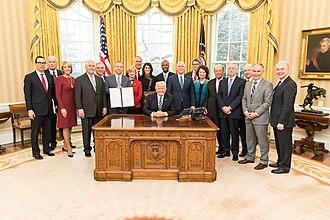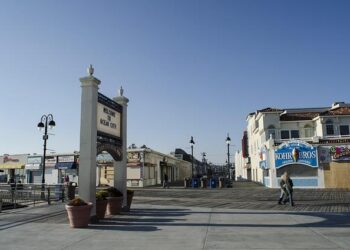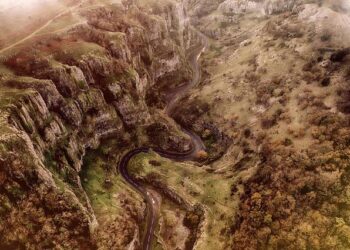The Trump administration has filed a lawsuit against a coalition of New Jersey activists and pro-Palestinian organizations following a skirmish that occurred during a synagogue event. The dispute has ignited tensions surrounding free speech, activism, and the complex dynamics of U.S.-Israel relations. This legal action, initiated by the federal government, raises questions about the boundaries of expressive conduct and the rights of activists advocating for Palestinian rights in the wake of a contentious altercation. As this case unfolds, it could have significant implications for both local community interactions and the broader landscape of political discourse in America.
Trump Administration’s Legal Battle Against New Jersey Activists Sparks Controversy Over First Amendment Rights
The legal landscape has shifted dramatically as the Trump administration takes a firm stand against local activists in New Jersey, igniting a heated debate about the limits of First Amendment rights. This controversy arises in the wake of a scuffle outside a synagogue where pro-Palestinian groups and counter-protesters clashed, leading to accusations of harassment and intimidation. The administration’s legal action has been framed as a defense of community safety and religious institutions, but critics argue it sets a dangerous precedent that could chill free speech.
Key figures in the activist community express concern over the implications this lawsuit may have on the broader movement for Palestinian rights. They argue that government intervention in public protests may not only suppress dissent but also embolden groups that oppose social justice initiatives. Activists are now mobilizing to rally support and challenge the administration’s claims, emphasizing the following points:
- Community Resilience: Local groups are committed to organizing peaceful demonstrations despite legal pressures.
- Legal Precedent: This case could impact how similar conflicts between protesters and counter-protesters are addressed in the future.
- Freedom of Expression: Advocates for free speech warn against government overreach that could stifle legitimate political discourse.
Implications of the Synagogue Scuffle: Examining the Intersection of Activism, Religion, and Government Response
The recent legal action taken by the Trump administration against New Jersey activists and pro-Palestinian groups following a conflict outside a local synagogue highlights the complexities at the intersection of activism, religious identity, and governmental oversight. This incident has ignited a broader discourse about the role of religious venues in political expression and the responsibilities that come with such platforms. Key points include:
- Activism’s Role: The event serves as a stark reminder that activism often thrives in public spaces, including those designated for worship, prompting discussions about the appropriation of religious sites for political ends.
- Government Response: The legal implications of the suit could set a precedent for how government entities engage with and regulate protests occurring within or around religious institutions.
- Community Reactions: Diverse opinions within the Jewish and broader community have emerged, raising concerns about the potential backlash against activists and the impact on interfaith relations.
Furthermore, examining the implications of this legal battle reveals underlying tensions between freedom of speech and the preservation of sacred spaces. The implications are twofold; they affect not only the future of political demonstrations but also pose significant questions regarding the level of protection afforded to religious establishments from external pressures linked to civic activism. A closer look at the possible ramifications includes:
| Implication | Potential Consequences |
|---|---|
| Legal Precedents | Sets groundwork for future suits against activism at religious sites. |
| Increased Polarization | Deepens divisions between pro-Israel and pro-Palestinian factions. |
| Federal Oversight | May invite more federal scrutiny of local protests. |
Calls for Dialogue: Recommendations for Addressing Community Tensions Through Peaceful Engagement and Understanding
The recent lawsuit filed by the Trump administration against New Jersey activists and pro-Palestinian groups highlights the escalating tensions surrounding community dynamics, particularly in relation to the Israeli-Palestinian conflict. In light of these events, fostering a climate of understanding and empathy is crucial to bridging divides. Initiatives that promote dialogue can pave the way for greater cooperation among differing factions. To this end, community leaders are encouraged to implement the following strategies:
- Organize community forums: Create regular spaces for open dialogue where residents can express their views and listen to others, minimizing misunderstandings.
- Involve youth in discussions: Engage younger generations in conversations about identity, history, and current affairs to foster an inclusive environment.
- Leverage local resources: Collaborate with local organizations and schools to conduct workshops focused on peaceful conflict resolution and the importance of diverse perspectives.
Additionally, creating a platform for collaborative storytelling can be an effective tool in humanizing experiences and fostering connections between disparate groups. By facilitating exchanges where individuals share their cultural narratives, misunderstandings can be reduced, and mutual respect can flourish. Consider establishing small group discussions, mentorship programs, or shared community service projects aimed at breaking down barriers and emphasizing shared values. These initiatives can be further supported by:
| Engagement Strategy | Expected Outcome |
|---|---|
| Interactive Workshops | Enhanced awareness of differing viewpoints |
| Cross-Cultural Events | Strengthened community bonds |
| Find Common Ground Projects | Ongoing collaboration and understanding |
The Conclusion
In summary, the recent legal action taken by the Trump administration against New Jersey activists and pro-Palestinian organizations marks a significant development in the ongoing discourse surrounding political activism and community relations within the state. The lawsuit, stemming from a confrontation outside a synagogue, underscores the complexities of free speech, civil dissent, and the role of federal oversight in local matters. As this case unfolds, it is likely to resonate deeply within both local and national conversations about civil rights and the boundaries of protest. Stakeholders across the spectrum are urged to monitor the situation closely, as the implications could stretch far beyond New Jersey, potentially influencing future activism and legal standards nationwide. As the story develops, further insights into the case will emerge, highlighting the tensions and challenges at the intersection of community advocacy and governmental response.
















